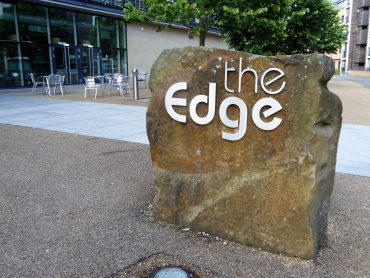Implementing novel designs in early phase dose-finding trials
Category: Early phase clinical trials

Deficiencies in the reporting of early phase dose-finding trials
Practical recommendations for implementing a Baysian model based dose finding design
Implementation of an R shiny application
NIHR Statistics Group – Early Phase Clinical Trials Virtual Meeting 2021
Date: Monday 20th September 2021
Time: 10:00 – 15:10
Theme: Implementing novel designs in early phase dose-finding trials
The meeting this year will be held virtually and bring together early phase trialists (including statisticians, clinicians and trial managers) to discuss practical implementation of novel early phase trial designs, early phase guidance and reporting quality.
Our programme features invited talks from Professor Saye Khoo (University of Liverpool) and Dr Sean Ewings (University of Southampton) on the AGILE COVID-19 national early-phase platform, Victoria Homer and Piers Gaunt (University of Birmingham) on newly developed guidelines for statistical analysis plans in early phase studies and Dr Olga Solovyeva and Professor Christina Yap (The Institute of Cancer Research) on reporting quality in dose-finding trials. Further to this, Khadija Rantell (MHRA) will talk on regulatory perspectives on dose-finding trials, and Rachel Phillip (University of Leeds) will present her work on an R Shiny application for assessing design performance.
There will be breakout group sessions for attendees to discuss key topics at the heart of using novel designs in practice: from the design and application for funding to statistical and operational considerations during the conduct. These will help to shape future work of the Early Phase Clinical Trials section.
Final Programme
10:00 – 10:10 Welcome and Overview of Meeting
Professor Christina Yap, The Institute of Cancer Research (ICR)
Session 1
10:10 – 11:35 Implementation of a novel early phase COVID-19 platform trial
Chair: Professor Adrian Mander, Cardiff University
10:10 – 10:40 AGILE platform from a clinician perspective
Speaker: Professor Saye Khoo, University of Liverpool
In this talk, I will discuss why we have created the AGILE platform and explore various questions including: What is wrong with the conventional approach to drug development in a pandemic? What are the opportunity costs and gains for a less versus a more efficient phase I/II evaluation of antivirals? What are the operational and ethical challenges to running a trial in a pandemic?
10:40 – 11:10 Practical recommendations for implementing a Bayesian model-based dose-finding design
Speaker: Dr Sean Ewings, University of Southampton
This talk will focus on statistical perspectives of delivering the model-based dose-finding design used in the AGILE platform trial (a trial of novel COVID-19 treatments), and what unique considerations it brought and how these were dealt with.
11:10 – 11:25 Q&A
11:25 – 11:35 Short Break
Session 2
11:35 – 13:00 Regulatory and trialists perspectives on the implementation of novel designs
11:35 – 12:00 Regulatory perspectives (Chair: Professor Christina Yap, ICR)
Speaker: Dr Khadija Rantell, Medicines and Health Care Products Regulatory Agency (MHRA)
Breakout Group Session (Chair: Dr Pavel Mozgunov, University of Cambridge)
12:00 – 12:15 Introduction to Breakout Groups
In this breakout group session, we will discuss various issues in the implementation of novel designs in dose-finding trials. The aspects of planning and conduct will be discussed in small groups with a moderator and each group will then report on the key points of the discussion.
12:15 – 13:00 Breakout Groups (Parallel session)
- Funding and Design (including costing, design requirements)
- Practical Conduct of Novel Statistical Designs (including statistical considerations/processes and trial management processes
13:00 – 13:50 Lunch break
Session 3
13:50 – 14:10 Software and Implementation (Chair: Dr Graham Wheeler, Imperial College London)
Implementation of an R Shiny application to present the Time to Event Continual Reassessment Method simulation results of a phase I platform trial testing novel radiotherapy drug combinations
Speaker: Ms Rachel Phillip, University of Leeds
CONCORDE is a phase I study that uses the Time to Event – Continual Reassessment Method to inform the dose escalation of different DNA Damage Response inhibitors with radiotherapy. Simulation work was needed to calibrate the TiTE-CRM models used in the study which produced numerous results; an R Shiny app was created to help present these results in future publications and to allow readers to see specific results of interest.
Session 4
14:10 – 15:00 Guidance and Reporting Quality
Chair: Dr Simon Bond, Cambridge Clinical Trials Unit
14:10 – 14:40 Early Phase Statistical Analysis Plan Guidelines
Speakers: Ms Victoria Homer & Mr Piers Gaunt, University of Birmingham
The project to develop guidelines for the content of Statistical Analysis Plans for early phase clinical trials is nearing completion with the guidelines themselves having been finalised. In this talk we will discuss findings of the project, the produced guidelines, and their implementation.
14:40 – 15:00 Deficiencies in the reporting of early phase dose-finding trials: findings from a rapid methodological review
Speakers: Dr Olga Solovyeva & Professor Christina Yap, The Institute of Cancer Research
This methodological review highlights the deficiencies in the reporting of important methodological features in the design, conduct and analysis of dose-finding trials, laying the foundation for the ongoing development of the CONSORT extension for dose-finding trials, DF-CONSORT.
15:00 – 15:10 Future Plans and Meeting Close
Professor Christina Yap, The Institute of Cancer Research
End of Meeting

